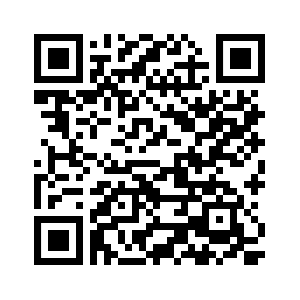Futures contracts are standardized agreements traded on exchanges, offering transparency, liquidity, and leverage. They require margin deposits, provide real-time price information, and are settled daily. Used for risk management, they can be settled in cash or physical delivery and cover various asset classes.
- Contract size
- Leverage
- Trading cycle
- Cash settlements
- Margin
- Price limits
- Expiration
- Mark to market
- Regulation of futures markets
Futures Contract Meaning
Futures contracts are agreements to buy or sell assets at specified future dates and prices. They standardize asset quantity and quality, serving as tools for hedging against price fluctuations or speculating in diverse markets, providing investors with opportunities to manage risk or seek potential gains.
For example, consider a farmer who grows wheat. To protect against the possibility of wheat prices falling by the time of harvest, the farmer enters into a futures contract, agreeing to sell his wheat at a fixed price at a future date. This ensures the farmer a guaranteed price, regardless of market fluctuations. On the other side, a bread manufacturer might buy this futures contract to secure a stable supply of wheat at a known price, protecting against potential price increases. This way, both parties hedge against price risks in their respective businesses.
Features Of Futures Contract
The main features of Futures Contracts encompass standardized quantity and quality, exchange-traded for convenience, margin requirements for security, leverage for capital efficiency, transparent pricing, daily account settlement, hedging options, and expiry dates, available across various assets.
Standardization is the process of ensuring that each contract within a specific futures category is uniform. This means all contracts for the same product and expiry date have the same specifications regarding quantity, quality, and delivery terms.
Traded on Exchanges is a feature indicating that futures contracts are bought and sold on regulated exchanges, rather than over-the-counter. This provides a structured market with set rules, enhancing transparency and liquidity. For example, the Chicago Mercantile Exchange (CME) is a prominent platform where various futures are traded.
Margin Necessities is a term referring to the requirement that investors must deposit a certain percentage of the contract’s value, known as the margin, to hold a futures position. This acts as collateral against potential losses. For instance, if a particular futures contract is valued at ₹50,000, the exchange might require a 5% margin, equating to ₹2,500.
Leverage is the ability to control a large contract value with a relatively small amount of capital, thanks to the margin system. This can amplify both profits and losses. For example, a small price movement in the underlying asset can lead to a significant percentage change in the value of the futures contract.
Price Visibility is the feature where futures prices are readily available and publicly displayed, ensuring transparency in the market. This allows traders to see the current market price of futures contracts at any time. For example, commodity prices on futures exchanges are continuously updated during trading hours.
Daily Settlement means the process where the profits and losses of futures contracts are tallied and credited or debited to the trader’s account at the end of each trading day. This is based on the closing market prices of the contracts. For example, if you’re in a profitable position, the gains are added to your margin account daily.
Hedging explains using futures contracts as a risk management tool to protect against price fluctuations in the underlying asset. For instance, a farmer might use futures to lock in a price for crops, mitigating the risk of price drops at the time of harvest.
Settlement Choices is the option to settle futures contracts either through physical delivery of the underlying asset or through a cash settlement. For example, while many commodity futures like oil or grain may involve physical delivery, financial futures like those on stock indices typically involve cash settlement.
Expiry Date is the specific date on which a futures contract expires. On or before this date, the contract must be settled or rolled over into a new contract. For example, a March wheat futures contract will have a set expiry date in March, after which it becomes void.
Wide Range of Assets is the characteristic that futures contracts are not limited to just a few commodities or financial instruments. They cover a broad spectrum, including agricultural products, metals, energy sources, currencies, and financial instruments like indices and interest rates.
How To Invest In Futures?
Indian investors can engage in futures contracts with caution, considering it as a potential strategy. Here’s a basic guide for starting, emphasizing educational purposes, not investment advice. Always assess your financial position and seek professional guidance if necessary.
Understand Futures Contracts: The futures contract is defined as an agreement to buy and sell the asset at a predetermined future date and price. It’s very important to understand the basics of futures contracts, including their risks and advantages. These contracts can be for various types of assets including commodities, stocks, currencies, and indices.
Trading Account: To trade in futures, you need to open a trading account. This account is similar to one used for stock trading, but it must be capable of handling both futures and options. In India, you can open this account with a broker or a financial services company.
Contract Specifications: Always be aware of the specifications of a futures contract, including the lot size (number of units in one contract), duration (usually one to three months), and margin requirements. The margin is an advance payment, a percentage of the total contract value, which you need to maintain in your account.
Trading and Settling Contracts: Futures contracts are traded on exchanges. In simple terms, you place an order through your broker, specifying the contract details. Normally, contracts are settled on their expiration date, but you can also settle before this date. Profits or losses are adjusted against the margins you’ve deposited.
Trading Strategy Development: Successful futures trading requires a proper and structured trading plan, including risk assessment and a clear entry and exit strategy. Understanding market dynamics is crucial, and traders must be prepared for sudden market movements.
Note the Risk Involved: Futures trading is complex and leveraged, involving certain risks. Unforeseen losses can occur, especially for those not well-versed in the market. Therefore, cautious steps and informed decision-making are essential.
Features Of Futures Contract – Quick Summary
- Futures contracts are agreements traded on exchanges for assets like stocks or commodities, with set sizes and rules. They offer leverage, need deposits, and are settled daily or at expiration.
- Futures contracts are agreements to buy/sell assets later at set prices. They help manage risk; for instance, a wheat farmer can lock in prices to protect against market changes.
- The main features of futures contracts are standardized, traded commodities with upfront deposits, offering control with small investments, transparent pricing, daily settlements, hedging against price changes, and diverse asset options.
- To invest in futures, understand contracts, open a trading account, know contract details, trade on exchanges, develop a strategy, and be aware of the risks involved.
Features Of Future Contract – FAQs
What are the features of futures contracts?
Futures contracts are standardized agreements for buying or selling assets at a future date and price. Features include exchange-based trading for transparency and liquidity, margin requirements for security, leverage for larger position control, daily mark-to-market settlements, options for physical or cash settlement, and risk management potential across various asset classes.
What are the 4 types of futures contracts?
The four common types of futures contracts are:
Commodity Futures: Agreements to buy or sell goods like gold, oil, or agricultural products at a future date.
Stock Futures: Contracts for buying or selling stock shares at a later date.
Currency Futures: Deals to exchange currencies at a specified future date and rate.
Index Futures: Contracts based on stock market indices like the NSE Nifty, allowing trading based on the index’s future performance.
What is a future contract example?
A futures contract is like pre-ordering a product at a set price for delivery at a later date, such as agreeing to buy oil for ₹6000 a barrel in three months.
What are the advantages of future contracts?
Futures contracts offer hedging, liquidity, leverage, price discovery, and diversification. They’re crucial for risk management and speculation, providing tools to manage price fluctuations, amplify market exposure, and trade across diverse asset classes.
What is the period of the futures contract?
Futures contracts span from one to several months, typically one, two, or three. They terminate on predetermined dates within these periods, offering traders short to medium-term planning for market strategies.
Who issues futures contracts?
In India, futures contracts are regulated by exchanges like NSE and BSE, ensuring standardized terms for quality, quantity, and expiration dates. This fosters transparency and facilitates trading and investment activities in a regulated environment.





